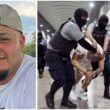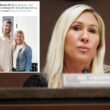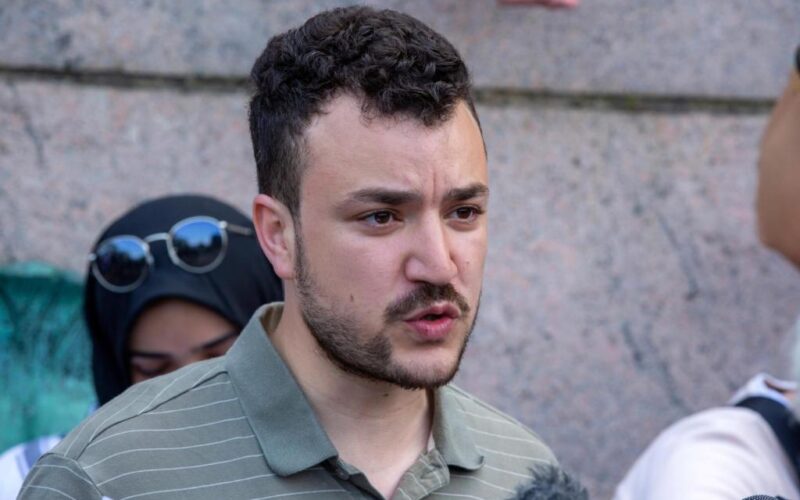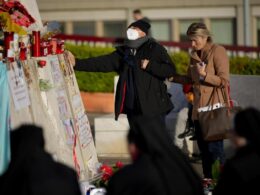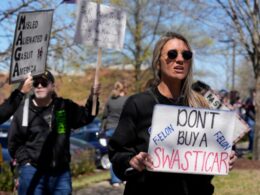In his misleadingly-named Executive Order, “Additional Measures to Combat Antisemitism,” President Trump identifies Palestinian activists as Hamas supporters and intimates that all Muslims are un-American and antisemitic.
This order has been used to detain or deport at least seven students and scholars from U.S. universities: Mahmoud Khalil from Columbia; Badar Khan Suri of Georgetown; Rumeysa Ozturk of Tufts; Alireza Doroudi from U. Alabama; Momodou Taal of Cornell; Dr. Rasha Alawieh hired by Brown; and least one unnamed student from the University of Minnesota.
The administration’s anti-democratic attack on Muslim students and Palestinian political activists will do little to reduce antisemitism. It will, however, entrench historic prejudice against Muslims and most certainly pose a threat to the religious freedom and political speech of all Americans.
To pick up individuals off the sidewalk or handcuff them on the way to breaking the Ramadan fast, the Trump administration has had to apply obscure sections of the Immigration and Nationalities Act that make “aliens” deportable if they endorse or are members of a “group that endorses or espouses terrorist activity” or in any way “interfere with U.S. foreign policy.” Like the 1918 Immigration Act that allowed the expulsion of “alien anarchists,” including Emma Goldman and other Jewish and foreign-born activists, this duplicitous legal maneuver preys on popular prejudice to silence unpopular views.
There is precedent. Donald Trump campaigned on the false premise that most migrants are criminals or gang members and thus, they became more easily denied due process. Likewise, by promoting old stereotypes about Muslims being unfit for democracy, beholden to foreign powers and prone to violence, he eased the way for denying Palestinian and Muslim student activists of their constitutional rights.
Homeland Security has not picked up any Presbyterians accused of endorsing or espousing terrorist activity. Not so far. Yet the Boycott, Divestment and Sanctions (BDS) movement championed by Rumeysa Ozturk in her co-authored op-ed in the Tufts student newspaper — has been church policy for the General Assembly of the Presbyterian Church (U.S.A.) since 2004.
Whether the BDS movement is antisemitic is a question taken up in interfaith dialogue for many years. It requires the attention and patience of religious leaders in America’s pluralistic public square. Likewise, locating the line between legitimate critique of the state of Israel and antisemitic speech is highly contested within Jewish communities and among non-Jews as well. One thing that should be unanimous, however, is that support for Israel should not be used as a dog whistle for politicians seeking to rid themselves of domestic political enemies.
Years of interfaith work and education against hate in New York has taught us that we rise and fall together. Islamophobic hate crimes are not entirely divorced from antisemitic ones. In 2022, for example, the year before Oct. 7 an FBI report showed antisemitic hate crimes rose 25% from 2021 to 2022, and hate crimes against Muslim Americans rose during the same period. Likewise in 2023, the number of reported antisemitic incidents in the U.S. increased by 388% in the four weeks following the Oct. 7 attacks according to the ADL, while the number of Islamophobic incidents in the U.S. increased 216% during the same timeframe, according to CAIR.
Trump’s Executive Order and attack on the basic rights of Muslim and Palestinian students whose political views he and many others disagree with does not address antisemitism. As Rabbi Jill Jacobs, CEO of Trua’h: Rabbinic Call to Human Rights put it, “this Executive Order does nothing to make Jews safer. Instead, it preys on the legitimate fears of American Jews to reinforce racist anti-Arab, anti-Muslim, and anti-Palestinian stereotypes that equate immigrants with terrorists.”
We have been here before and have guideposts for a way out. In the immediate aftermath of 9/11 when the NYPD suspended the Handschu guidelines, surveilled mosques, infiltrated Muslim Student Associations and equated daily prays and growing a beard with radicalization, it took civil society organizations and faith communities at least a decade of marching, lobbying, suing, and educating about Islamophobia and religious identity to correct the imbalance between security and civil rights.
Muslim leaders found common ground with Pentecostal and Black church pastors over stop and frisk. Together, these groups lobbied the City Council for the Community Safety Act of 2013 that included an inspector general for the NYPD. Eventually we got a new mayor and a new police commissioner.
Respect for religious freedom and stewardship of our basic democratic rights go hand in hand. The stakes are higher this time around but the way through is the same.
Breyer, an Episcopal priest, is director of the Interfaith Center of New York.

